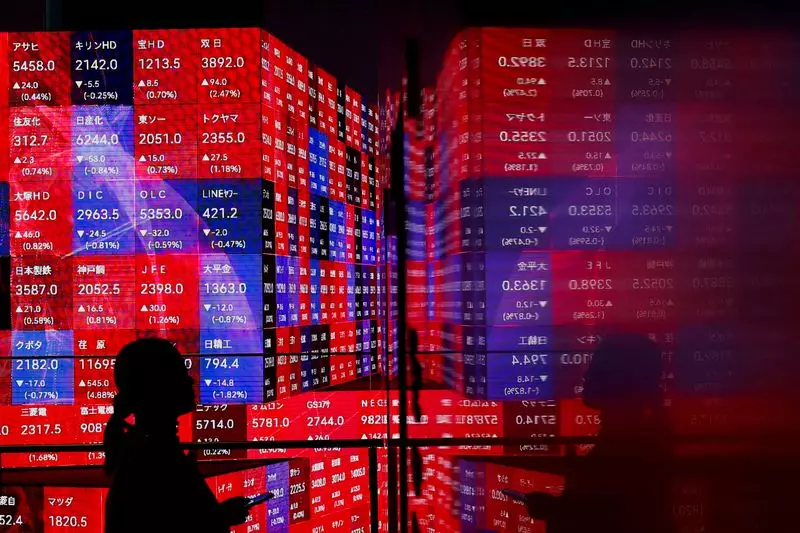The launch of DeepSeek, a Chinese startup’s free and open-source artificial intelligence model meant to rival OpenAI’s ChatGPT, has sent shockwaves across financial markets. On a recent Monday, futures for U.S. stocks, as well as Asian equity markets outside of China, experienced notable declines. The juxtaposition of technology and finance has always been tumultuous, but the emergence of DeepSeek reignites concerns about the competitive balance between the United States and China in the high-stakes AI race. Market analysts are now contemplating whether this new player will significantly alter the competitive dynamics, potentially destabilizing the established dominance that U.S. tech giants have enjoyed for years.
As investors dissect these developments, the implications are profound. U.S. Nasdaq futures dropped by 1.8%, indicating diminished confidence in tech stocks, while the S&P 500 futures fell 0.9%. Market players are grappling with fears that a more robust Chinese presence in AI could put pressure on U.S. valuations, suggesting that the inflated value of American tech companies could be scrutinized under new competitive pressures.
In a parallel development, political tensions have further complicated the economic landscape. President Donald Trump’s recent imposition of retaliatory tariffs on Colombia has drawn attention, raising eyebrows regarding its impact on broader U.S. foreign trade policies. The dollar strengthened against several currencies, including a 0.3% increase against the Chinese yuan, reflecting the market’s reaction to these geopolitical maneuvers. The yield of the dollar against the Australian and New Zealand dollars also showed upward movement, driven largely by their proxy roles in relation to the Chinese economy.
Despite the immediate currency fluctuations, analysts remain cautious. The potential for long-term dollar strength in response to tariff concerns seems less certain, as a Nomura strategist suggests that Trump’s approach may be evolving towards a less aggressive stance on tariffs. This suggests a recognition that steep tariffs could contribute to inflationary pressures that he may prefer to avoid.
As the markets brace for a consequential week, investors are also focused on the impending decisions from major central banks, such as the Federal Reserve and the European Central Bank. These policy announcements come at a time when many Asian markets are observing extended holidays for the Lunar New Year, resulting in further volatility. The impact of these monetary policies will be crucial as they shape expectations around interest rates and economic growth trajectories.
Adding a layer of complexity, crude oil prices dipped after President Trump reiterated calls for OPEC to take action against rising oil prices. Following his remarks, Brent crude futures fell by 1.2%, and West Texas Intermediate crude showed a similar decline. The fallout from these developments illustrates the interconnectedness of markets—oil prices, currencies, and equities are intertwined, with shifts in one sector inevitably leading to reactions across the others.
In this landscape marked by uncertainty and adaptation, cryptocurrency continues to exhibit its own volatility. Bitcoin, a leading cryptocurrency, plummeted 3.5% to just above $101,000. The cryptocurrency market, known for its rapid changes, may increasingly reflect apprehensions rooted in broader economic indicators and geopolitical developments. Investors are now facing a nexus of technological innovation, market volatility, and policy changes that together shape an uncertain future.
The introduction of DeepSeek signals a strategic shift in the AI sector that could reverberate across global markets. As competition intensifies, particularly between the U.S. and China, investors need to recalibrate their strategies. Furthermore, the intertwined dynamics of trade policies, currency fluctuations, and commodity prices are key elements that will determine market trajectories in the coming weeks. With the arrival of the Lunar New Year impacting several markets, ongoing international relationships can either stabilize or disrupt economic growth, highlighting the delicate balance that market participants must navigate in this ever-evolving landscape. Navigating this complexity will require vigilance as stakeholders adapt to an atmosphere of rapid change and uncertainty.

